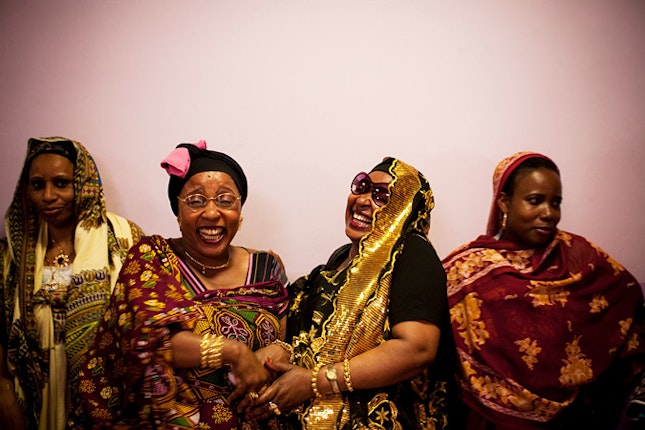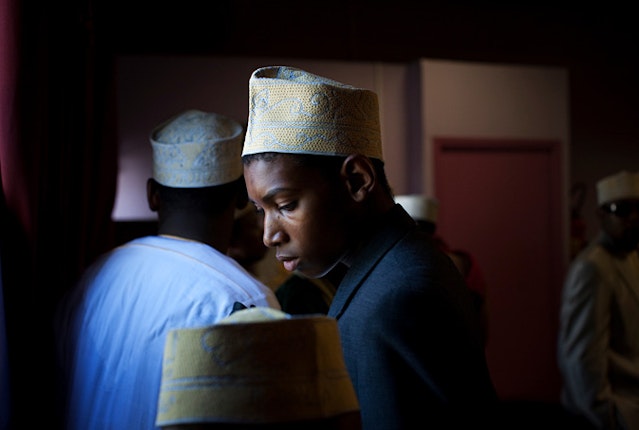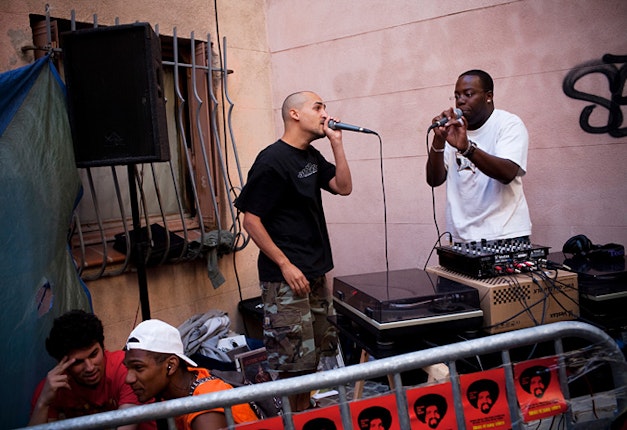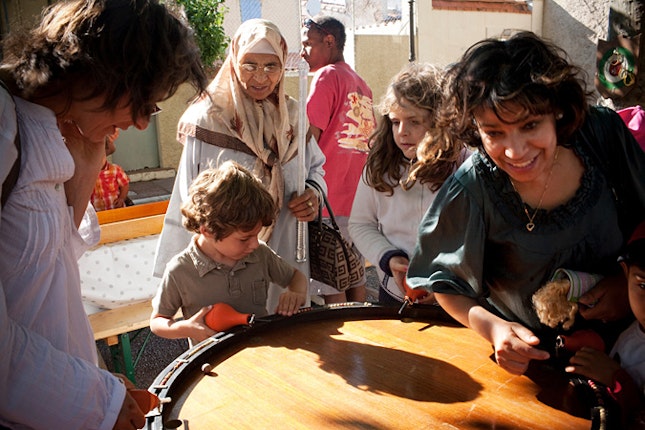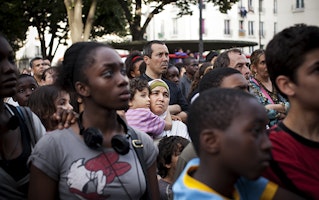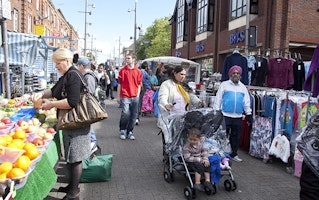Muslims in Marseille: Rhetoric and Reality
By Nazia Hussain & Hélène Irving
The Open Society Foundations have released a new report, Muslims in Marseille, which examines the city's deep divisions and the vast inequities facing Marseille's Muslim residents. The report is part of an ongoing series that looks at the integration of Muslims in 11 cities across Europe (Antwerp, Amsterdam, Berlin, Copenhagen, Hamburg, Leicester, London, Marseille, Paris, Rotterdam, and Stockholm). We spoke with Francoise Lorcerie, one of the researchers behind Muslims in Marseille; Alain Fourest, a human rights activist and founder of the Roma rights organization Rencontres Tsiganes; and Djamel Bouriche, a child psychiatrist, specializing in intercultural psychiatry.
Tell us why you got involved in this research.
Francoise Lorcerie: I was very curious about how to gain entry into research looking at the category of "Muslims" and the At Home in Europe Project's work on Marseille offered me the opportunity to do this. I specialize in urbanization and education, but until now I had not had the opportunity to study these fields specifically in relation to Muslims. Marseille offered me an opportunity to understand the wider picture. My research until now hasn't focused on housing, unemployment, and Muslims, at least not as a social group. There's a taboo about religion in France and within the field of research Muslims are in the margins of interest. I knew this report would allow for the existence of empirical data—as to date there is very little available—and would be important for other social scientists.
What can Marseille's policymakers do to make Muslims and other minorities feel accepted and to belong?
Alain Fourest: The only response is "respect." They have to treat people with respect and politeness. Use vous instead of tu when they speak to Muslims and other minorities. They also needs to rethink the way that they approach relations between Muslim communities and the city. For example, affirmative action within the police force in favor of Muslim police officers is not going to solve the tensions between the police and Muslim communities. What is needed is real strategic action and thinking about how to bring Muslims and other minorities together with policymakers to better improve the situation.
What does identity mean for Muslims in Marseille and how does the national rhetoric on this correlate with what you found in Marseille?
Djamel Bouriche: Identification and belonging to a traditionally Provencal town are different when compared with the capital and the dominant French culture. Identity and experiences are more grounded in the local area (in this case Marseille) and are not closely aligned with what is being said at the national level on identity. This is about the everyday experiences of Muslims and the rhetoric from the top can be unhelpful.
There is a difference between the national perception of the failure of Muslims to integrate and the reality of everyday integration at the local level. Does the report bring out this tension and difference?
FL: The tension between the national rhetoric and local realities is not very present in the report. This report's peculiarity is its empirical data. We try to point to the realities of life in Marseille, and this report is descriptive in its analysis. It mainly describes what the situation is and leaves the analysis to you, the reader.
The hijab has been banned, as has the niqab. What is next in line for legislative hysteria?
FL: In terms of legislative action the next thing is, in my opinion, reduced access to what we take for granted, such as use of public services, the labor market for women who wear the hijab, as well as a general proscription on women in the social sphere, such as mothers who wear the hijab accompanying children on school trip being banned. Here in France we have legislative action against established liberties—loi (law) conflicts with droit (right); it's a conflict between politicians and jurists—jurists are stable in their interpretation of the law whilst politicians change the law so that it can be used to control social attitudes. The law is being moved into the area of national identity whilst jurists are more clear what laicite (France’s long-standing policy of secularism in government affairs and public institutions) clearly is. Muslims are on the legal side of laicite whilst politicians are on the political side.
AF: All minorities will be affected—stigmatized, ridiculed. We have legislation targeting Muslims and Roma. Next it will be Roma children, Comorians (earlier this month Minister of the Interior, Claude Geant, claimed that the immigrants from the Comoro Islands were responsible for violence in Marseille). At this time of pre-election campaigning, anything is possible.
What should (and are) the Muslim communities of Marseille doing in order to engage with their city?
DB: Get over interethnic cleavages and create a real French Islamic theological thought, where people can find common framing for their Muslim identity. This will allow for more organization and mobilization and demands can be addressed to public powers.
What does this report say about integration in France?
FL: The question of identity and Muslim identity is a very complex question in France. This report is about integration whereas discussion on integration about Muslims on the national level is not about inclusion or the common presence of Muslims.The debates on national identity in Marseille and across France are usually centered on and about the majority society. In contrast, our report is about a few people, Muslims. Though the question of discrimination and racism is not the sole focus of this report, it does play a role and is important in the problems now facing France. The report does not talk about the rest of society, the "usual suspects" in national discussions on identity and integration. What this report says is that groups in society continue to interact with each other and integrate despite often hostile political and public action and that integration is not just a matter of public policy.

Nazia Hussain is the regional manager for the Asia Pacific Regional Office.
Until October 2014, Hélène Irving was a program coordinator for the Open Society At Home in Europe project.
